Choose a HUMAN not a machine (translation)
Every now and then there's some news that shake our little happy world we live in our Localization community. The pattern is always quite predictable, it’s like a bad movie of superheroes where it does not matter how much the protagonist will suffer in the end s/he will defeat the bad guys.
This week the Google handset entered the stage … and the plot is the same as before … as a bad movie of superheroes
Here the pattern is as follow
- An app or tech gadget is presented with some translation capabilities
- We are listed numerous reasons explaining why we NEED to buy this gadget, or technology or services or … you name it
- We are compared this amazing unlimited power of the gadget with .. well, our limited power as human beings
- Apocalypses, drama, and chaos is thrown out to the individuals working in the industry
This 4 steps pattern is quite common and it’s applicable to many different industries I.e self-driving trucks, many articles predicting the reduction of truck-drivers by trucks controlling the logistics market, another example are the robots that will work for us in our houses taking care of all our needs, but today I don’t want to talk about self-driving trucks or “self-driving” robots … I want to talk about the Google headphones launched recently. This magical gadget promises to do real-time translation in 40 languages and just a few days after the debate about machine translation vs human translation came again to the cover page of different media. In my post today I want to talk about this topic and I want to defend that please, please USE ALWAYS HUMANS not machines.
Please use always humans and not machines because if you are translating for example a video game 😃 (although this advice might be extrapolated to other localization areas, i.e marketing campaigns) we deserve the best quality. So do our users. I don’t mind what humans you choose whether they are freelancers or language vendors. But let’s use humans. What kind of humans should we choose? Keep reading ….
Working directly with freelancers generally speaking will be cheaper than engaging with vendors. Per-word cost with an agency will be more expensive, however, if we don’t have time to look for freelances, test them, negotiate rates and sign NDAs … well, vendors are excellent option to consider.
Quite often I received emails offering me Localization services based on the use of machine translation and how much this is going to reduce the overall cost of the project by using MT. But there’s something intrinsically wrong in my opinion with this approach, the best quality in Localization is not obtained on focusing just in the translation cost, that’s just one of the legs of the table, and I do definitely believe that awarding a project to a service provider just because it will use any sort of machine translation under the promise of budget saving… well, in my opinion this is a recipe for a localization fail.
““The best quality in Localization is not obtained on focusing just on the translation cost””
I downloaded one game last week from the new polished iOS App Store; I was looking for games to kill one hour while waitingmy car oil changed. I downloaded a game (I won’t say the name to avoid unnecessary embarrassment 😃) and they clearly used machine translation.
How can I recognise that? Well, simple, I recognised these patterns
- Inconsistency in the use of terms; context matters, and context shape when to use one word or another … and this is a decision deeply human. Every word has many possible translations
- Mistakes by choosing the wrong gender and plurals. The game was clearly developed in English as source language, and applying machine translation to a video games from English to any other languages leads to embarrassing mistakes. Specially if there’s not post edit phase after MT. Do you want to know more about how to handle gender/plural while Localizing? I would recommend to review the One Sky academy. They have very good examples there!
- Plain characters personalities. In a video games characters have soul, they have a personality, they have feelings and emotions, it’s like a movie! You can empathise with the personality of your players while you play, but in this specific game I tried … well, the characters where just flat … no rhetoric, no emotions … plain personality, very automatic, very … well, that’s it.. very “machine” booooring!
That translation…. it ruined my experience as a user, I just uninstalled it after 10 minutes of seeing grammar mistakes and artificial dialogs between main characters. And for me my perception for than specific developer will be difficult to change. I found them “cheap”, careless and with low standards. A high-quality translated game is more engaging, more addictive and with higher chances of monetisation …
I can understand that a company has a limited budget and for this reason might have the temptation to translate a video game using machine translation … but in my opinion if there’s no budget for proper localization, it’s better to save those euros and invest them on something else that it might benefit more the company in other areas. Grammar mistakes are common in cheap low-quality translation.
It’s true that technology is moving fast, but I haven’t seen yet a premium translator suffering to defeat a machine translation…. Maybe a mediocre localisers might be concerned with these Google handset, but a good one I believe should not be concerned at all … I don’t think machines will rise against us any time soon, and at least I’ll do my best not contributing to that! … and I will do that by choosing always a human, this might be a freelancer, this might be a small agency or a huge multilingual vendor .. but it will be always a human, because translation is a profession, and translators don’t just translate words, the paint ideas and connect thoughts in sentences, and they do all this with love, and passion towards words … something very difficult to do for a machine (yet) 😃
Please feel free to share you thoughts below and I would love hearing from you if you have seen any video game properly localised via machine translation or if you have seen any marketing campaign properly transcreated by using machine translation … moreover … if you are translator are you concerned with all these newspredicting the replacement of real pro-people by an “ugly” piece of plastic such as a headset (?)
Have a splendid week and do not hesitate to reach out for thoughts, ideas feedback or suggestions about my blog. Please comment below and thanks for taking the time to read me!
@yolocalizo

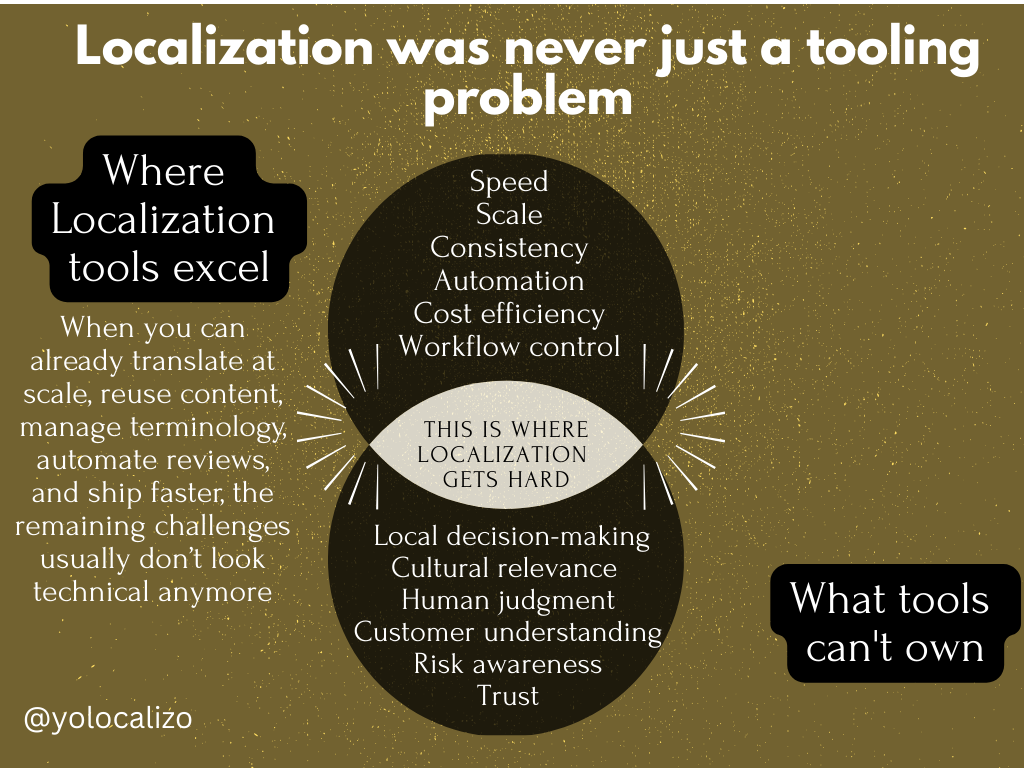
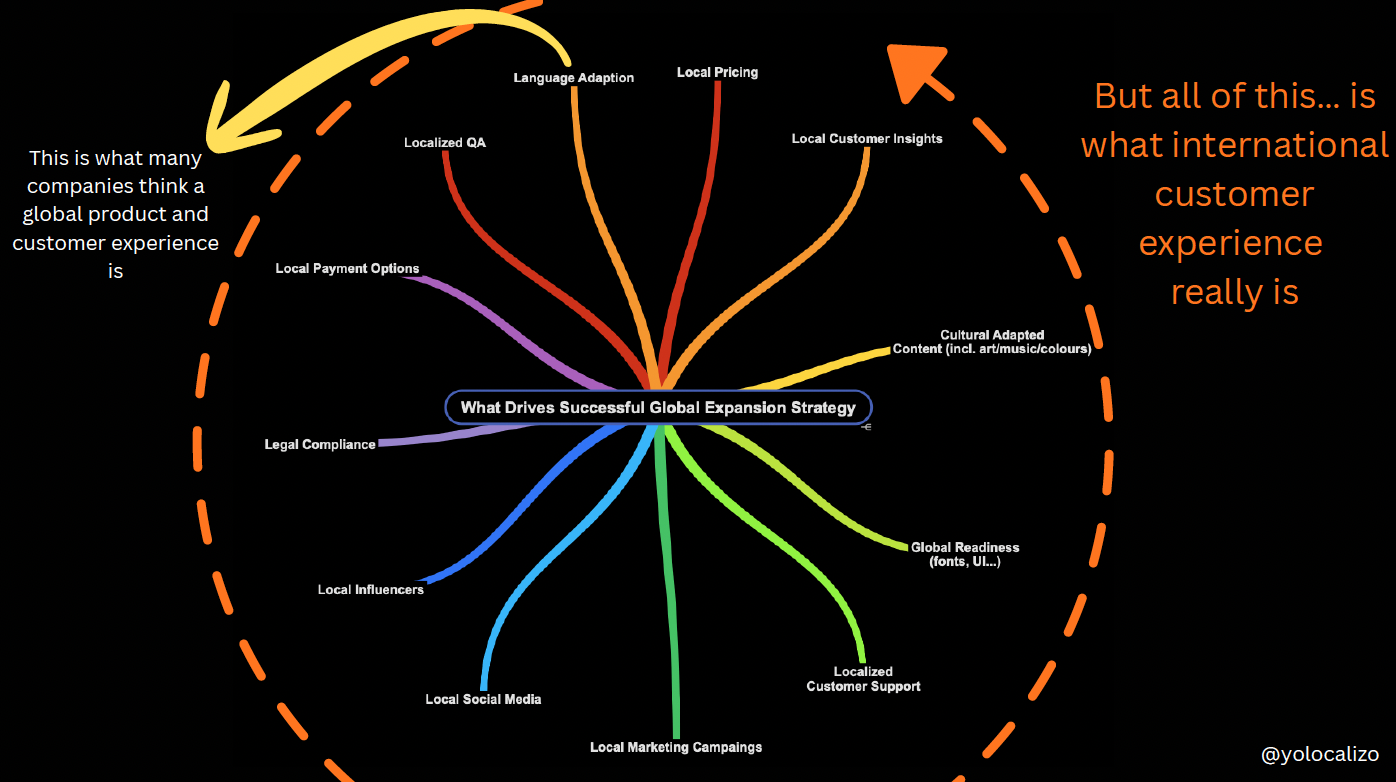
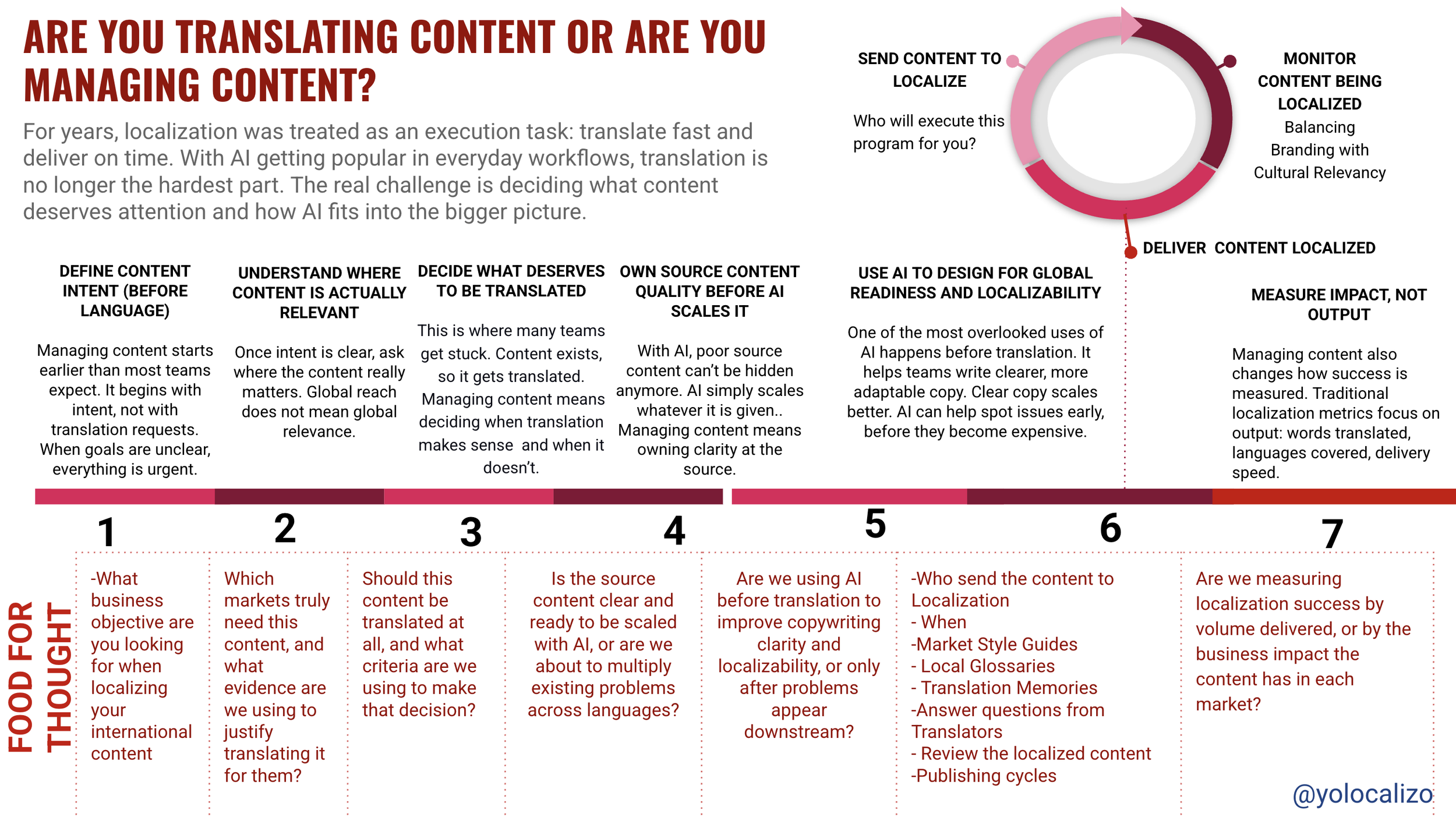

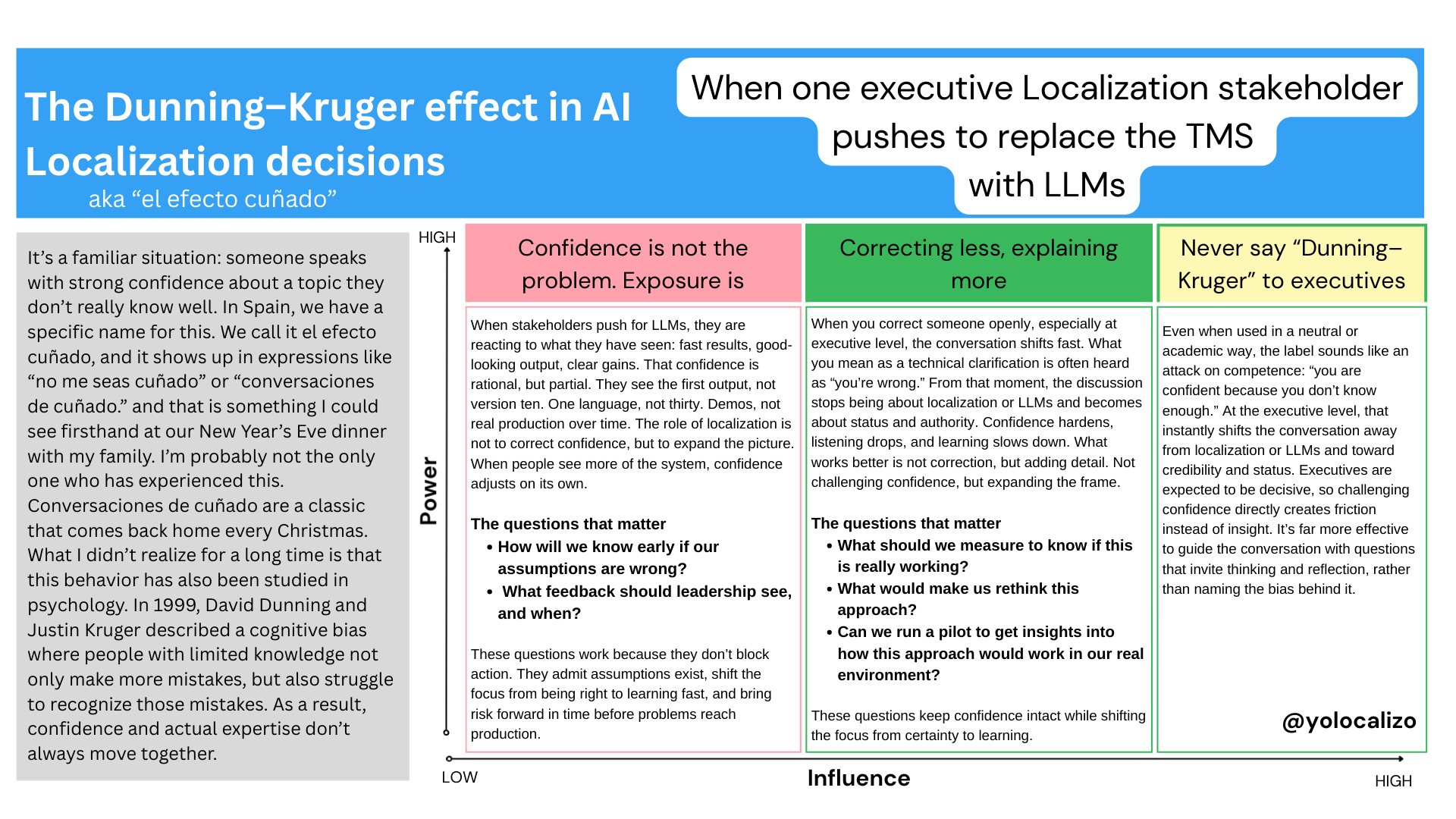


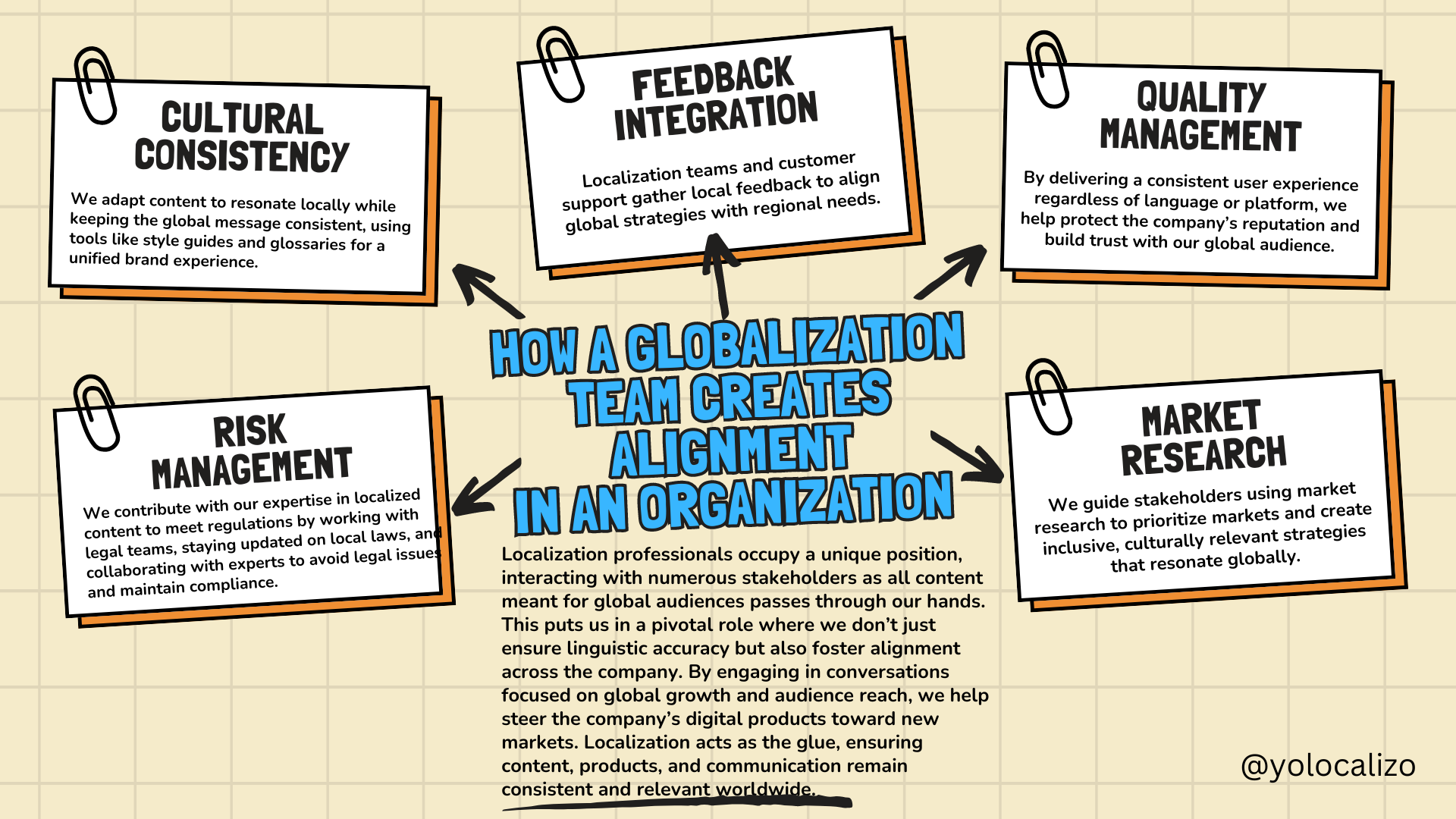





The world of localization is full of small, hidden details.
Some things are deeper than they seem, and I often see between in-context review and LQA in the world of Localization. They might seem the same, but if we scratch beneath the surface, we'll see they're not what they seem.
In this post, I want to focus on explaining the differences between in-context review and LQA, which is something I see being confused quite frequently, and although the tasks are similar ... they are not the same.